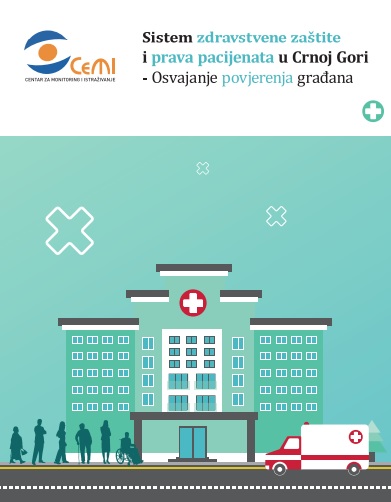This practical public policy proposal emerged within the project "Healthcare System and Patients' Rights in Montenegro - Building Citizen Trust," funded by the European Union through the Delegation of the European Union in Montenegro, as well as through the European Instrument for Democracy and Human Rights (EIDHR) and the Support Program for Montenegro (CBSS).
The primary objective of this study is to illuminate the challenges facing Montenegro's healthcare system through an analysis of the current landscape and to offer clear recommendations for its enhancement. To achieve this, we examined the legislative frameworks of neighboring countries (EU member Croatia and EU candidate Serbia). Our focus extended to scrutinizing the role of patient rights advocates and gauging citizens' perceptions of healthcare quality. We gathered data through extensive research, public opinion polls, the provision of free legal assistance, anonymous reports of rights violations via a web and mobile application, and ongoing dialogue with relevant institutions.
Since 2013, CeMI has been at the forefront of highlighting issues within Montenegro's healthcare sector. Building on our established collaborations with nearly all healthcare institutions and our dedicated, impartial approach, we have continuously strived to enhance system functionality. Drawing from our wealth of experience, we endeavored to address the healthcare system's weakest links through the activities of this project.
The study at hand distills insights gleaned from analyzing cases of free legal aid, examining the legislative landscape and patient rights advocacy, scrutinizing public opinion surveys, conducting focus groups and interviews, and reviewing anonymous reports on rights violations and healthcare corruption via web and mobile platforms.
The study comprises the following components:
- Analysis of legislative framework changes
- Comparative analysis of regional legislation
- Exemplary practices of Patient Rights Ombudsmen
- Evaluation of patient rights advocacy in Montenegro
- Assessment of healthcare provision for marginalized groups
- Evaluation of healthcare institution manager selection processes
- Analysis of public procurement practices in healthcare
- Conclusions and recommendations
